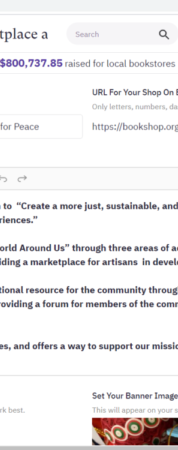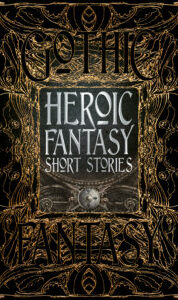Open to new projects!
I visited this blog the other day, probably to get the link to my article “12 Words to (Almost Always) Cut” (which today I’d title something more like “12 Words to (Almost Always) Replace” or “12 Words to Watch Out For,” though with the latter I’d lose the cheeky use of two of those twelve words in parentheses). And to my surprise, dismay, chagrin, and other emotions, I saw the last time I’d posted an update was to tell everyone in...
Read MoreClosed to new book-length projects until October
I’m able to offer sample edits and estimates for new projects, but I cannot deliver any additional projects until further notice. That is, if you’ve already contacted me about a project, you’re on my list. But if I hadn’t heard of your need for editing before today, I cannot start the work until I’ve completed some of my current to-do list. My to-do list as of today includes 12 projects, 6 of which I want to complete in September, 4 of which are “high...
Read MoreQ&A from the Clubhouse
Wow! Last evening was so fun and energizing–I admit I was a little unsure how a live chat app would work, but we had many wonderful people join us with some pertinent questions and insights. And talking to people out loud was very energizing; I just hope I didn’t talk too fast. I was mostly listening and talking rather than taking notes, but I jotted down a few questions and suggestions I remember from last night to share, both to help those of us who were there to remember and to...
Read MoreNotes from Your Editor (Clubhouse meeting, August 12)
I hope many of you will be able to join me! As I prepare for my live chat with Nicki tomorrow, I have some notes that I’d like to share here on my website, both for listeners to follow along with, and for those who aren’t able to make it to benefit from: A. Copyediting, proofreading, line-by-line — what do all these terms mean? Developmental/structural/content edit – literally developing the ideas in the book. What to include and in what order? Add, reorganize, remove? Often...
Read MoreHow to build an Affiliate storefront on Bookshop.org
About Bookshop.org Started in January 2020, Bookshop.org is designed to be a better alternative to Amazon, allowing readers to shop online conveniently while supporting indie bookstores, along with authors and organizations who build affiliate stores. Bookshop’s 10% affiliate fee is industry-leading: when someone buys a book from your affiliate store, 10% of the cover price goes to you. Another 10% goes into a fund to be distributed to independent bookstores. Since it’s so new, Bookshop.org is...
Read MoreBefore Editing: A Recommended Reading List
Part of being an editor is noticing patterns—the motion of a character arc, the raveling of a resolution, or the fact that the past five paragraphs have all started with the same word. Here’s another pattern: I’ve been recommending certain articles and books to almost every client I work with, year after year. So why not share them here once and for all? These 12 short articles and 6 books delve into the writing techniques I comment on most frequently. Many of them formed the core of my own...
Read MoreHeroic Fantasy Author Q&A, Bonus
Flame Tree Publishing has posted the second part of its Q&A with the authors of the stories in Heroic Fantasy. This time, we talk about our writing and editing methods and recommend some of our favorite reads in the genre. Take a look and something might inspire you! Though each author answered both questions, method and favorite stories, only one of our answers could be shared because of space constraints. So here’s my favorite heroic fantasy: When I was writing my first...
Read MoreA Checklist to Start Publishing Short Fiction
This post originally went live on Fictionvale in 2014 and was reprinted in Short Story Writer Magazine. Unfortunately, Fictionvale has since closed and the article is no longer available online. I’m taking the opportunity to repost it while I’m moving to my new apartment and have less time available to blog. While it’s focused on writing short fiction, the advice may also be helpful to novelists, article writers, artists, and anyone curious about how publishing works on the...
Read More12 Words to (Almost Always) Cut
Strong stories are not necessarily short. They don’t need to be Hemingway-esque masterpieces of bare prose (even Hemingway didn’t always write that way). And it would be hypocritical to argue for only short sentences or short paragraphs when I have to make a conscious effort to write either. But in a strong story, every word counts. And no word is misplaced or ill-chosen. The vocabulary is vivid and usually varied, plus precise (though alliteration is optional). Words do not...
Read MoreThe Big List of Writing Writing Resources, Part One
You can write your story with nothing but a reasonably flat surface and something that leaves a mark, but it’s a lot easier when you have the right tools. Happily, there are a lot of useful resources out there. Here are some of my favorites. I encountered a few while writing The Starter Guide for Professional Writers (about which I have exciting news: revisions and expansions are underway for a second edition! The past two years have seen some interesting changes in the publishing...
Read More







 Therese Arkenberg's first short story was accepted for publication on January 2, 2008, and her second acceptance came a few hours later. Since then they haven't always been in such a rush, yet her work appears in places like Beneath Ceaseless Skies, Analog, Daily Science Fiction, and the anthology Sword & Sorceress XXIV. Aqua Vitae, her science fiction novella, was released by WolfSinger Publications in December 2011.
She works as a freelance editor and writer in Wisconsin, where she returned after a brief but unforgettable time in Washington, D.C. When she isn't reading, writing, or editing (it's true!) she serves on the board of the Plowshare Center of Waukesha, which works for social, economic, and environmental justice.
Therese Arkenberg's first short story was accepted for publication on January 2, 2008, and her second acceptance came a few hours later. Since then they haven't always been in such a rush, yet her work appears in places like Beneath Ceaseless Skies, Analog, Daily Science Fiction, and the anthology Sword & Sorceress XXIV. Aqua Vitae, her science fiction novella, was released by WolfSinger Publications in December 2011.
She works as a freelance editor and writer in Wisconsin, where she returned after a brief but unforgettable time in Washington, D.C. When she isn't reading, writing, or editing (it's true!) she serves on the board of the Plowshare Center of Waukesha, which works for social, economic, and environmental justice.